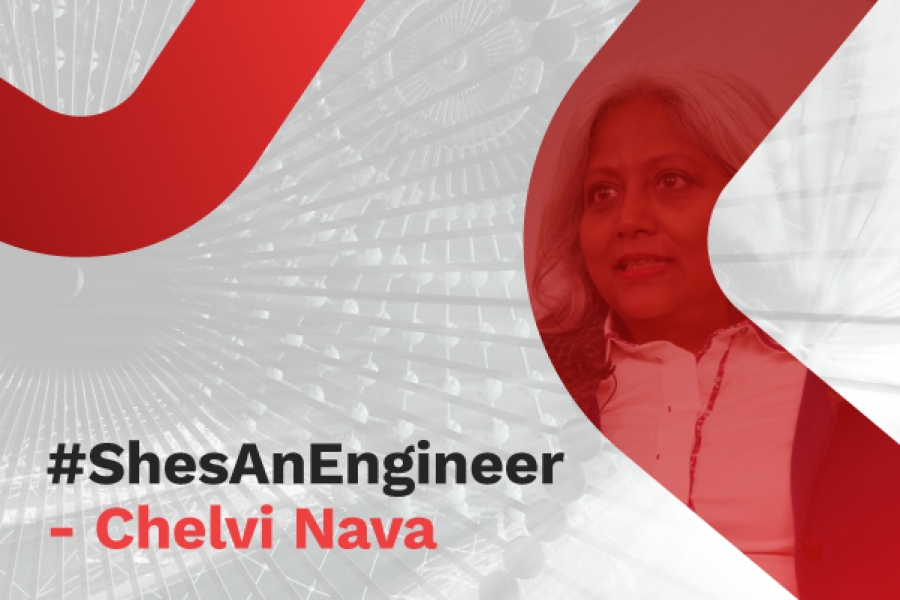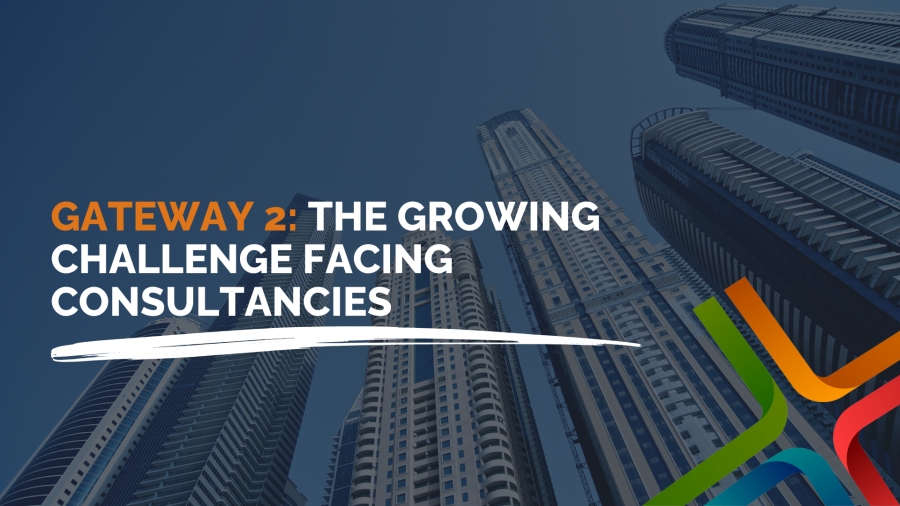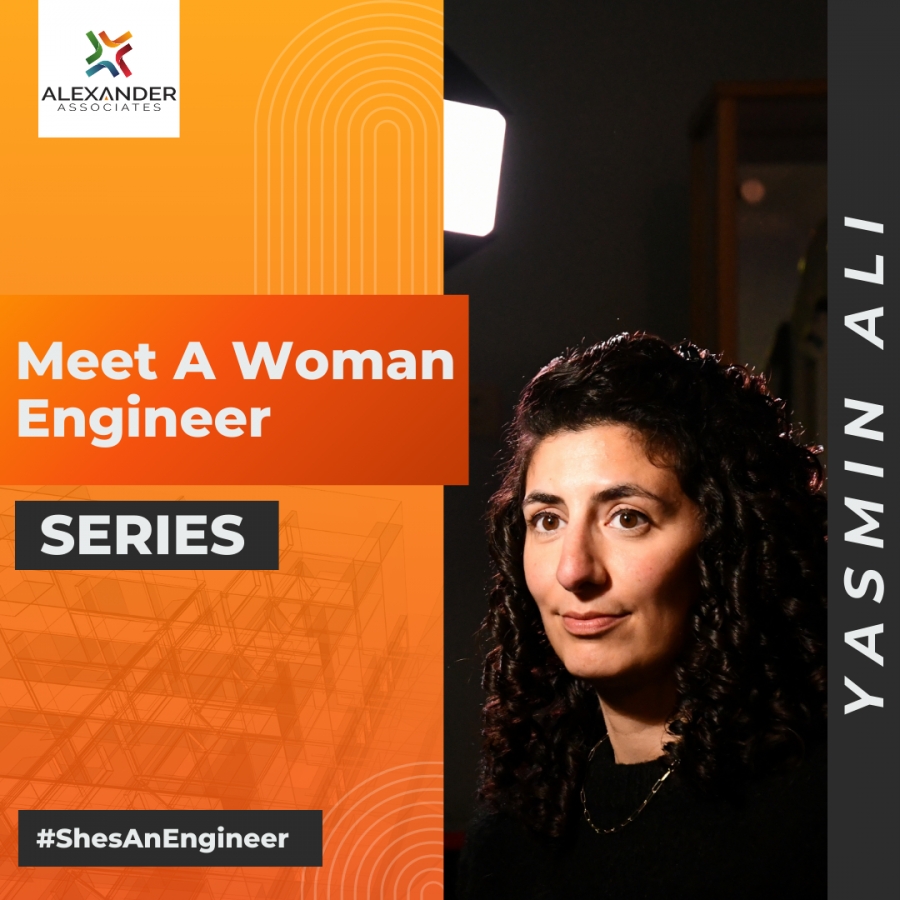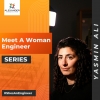In the UK and abroad, Chelvi carved out an impressive career for herself. She is one of a small, but growing number of women working in engineering and has paved the way for others to follow.
Today we’re learning about her life and her motivation, as well as discovering the different challenges she’s faced as a woman in engineering.
Inspiration and Early Years
Chelvi spent her childhood living in university quarters in Kuala Lumpur – her father was a Professor of Civil Engineering and her mother was a Maths Teacher. Her parents encouraged her that she could pursue any career path that she desired.
“When I was young, I wanted to be a doctor or a surgeon but this changed when I was ten during a family holiday to Europe. We were travelling around by train and while passing through Austria, I saw these beautiful bridges linking remote communities that would otherwise be completely isolated. I was awestruck by the nature and the human spirit of it, and this stuck with me.”
When the time came to go to university, Chelvi’s parents asked her what she wanted to do, and she chose to study engineering at the University of Southampton.
“There were around 40 students on my course and just four of us were women. However, one was an exchange student who just came for a year, so for the remainder of the course we were just three!”
Working as a Woman in Engineering
After graduating at the top of her class with a first-class honours degree, Chelvi accepted a job with a British company in Singapore. Here she discovered that proving yourself is key to developing a career in the industry.
“I was brought up to be fearless, so I never go into a situation expecting a problem but that doesn’t mean problems didn’t happen! What I found in the East was, they look at you with a bit of trepidation initially, but once you’ve proven your technical abilities, then that’s it and your gender doesn’t matter, which is what all of us want. I’ve worked in the UK, Europe and South-East Asia, and I’ve had the least number of female colleagues when working in the UK., We have to question why that is.”
As a woman of colour in engineering, Chelvi has endured and overcome a number of different challenges. Some of which were harder to resolve and adapt to than others.
“Before I left Singapore, my mentor – a Senior Engineer at the company I worked for – warned me that I would encounter racism while working in the UK. This was unfortunately the case but I’m a resilient person and would usually try to laugh it off. For example, people at work would often comment that I’d be making curry for dinner that night, and I would just tell them that actually we very rarely eat curry in my house”
But there were other practical issues Chelvi faced.“A practical issue that I experienced early on – and one that I still see people talking about on LinkedIn – is that they never had boots in my size for when I was on site.
“I remember once we were clearing an old burial site and I had to wear two or three pairs of these welly-type things over my shoes because I couldn’t fit into any of the boots. As I tried to walk across the site, I sank into the mud and two men had to pull me out and carry me across. This was in 1989 and still today women find it hard to get appropriate site boots in their size.”
With more women being encouraged into engineering these days, many businesses are attempting to become more inclusive employers, with some setting a target of hiring 50% female employees.
“When I entered the profession, I would say women made up 10 - 12% of the workforce and today it’s only improved to 16%.”
Workplace Discrimination
“A huge barrier I faced was that I needed one year of on-site experience to become a Chartered Engineer. Every time I approached the training manager, he’d say he couldn’t find a suitable placement for me, but I would tell him that I don’t care where I go, just get me on site.
“When I left university, I was voted the person most likely to get chartered first, but then I was left behind everyone else. This is what led me down the structural engineering route, which is just as rigorous, but they allow you to accrue site experience rather than having to go and do a full year.
“This was perhaps the most direct gender discrimination I experienced. I’ve had a pretty good trajectory in my career, so after that stumbling block, the next big obstacle was becoming a parent, and then becoming a single parent.
“Many women have to take on the role of the main carer. I was finding that I wasn’t often getting the roles that I was qualified and experienced to do. Or, if I did get these roles, then it was very difficult to get the flexibility I needed as a parent.”
“In the UK, my son’s childcare cost me just as much as my mortgage, so I ended up moving back to Malaysia for three years where I could afford childcare. But when we returned to the UK, I was back in the same situation.
“When I asked for a raise, a superior at work told me that I was unlikely to get a promotion until my son was a teenager because they felt I wouldn’t be able to put the hours in. It wasn’t until 1996 that I found a company to work for that paid for my son’s nursery and allowed me to work from home one day a week, which meant I could pick him up from school.
When her son was ten years old, Chelvi made the decision to give contracting a try.
“At this point, I’d been struggling for several years. In fact, I’d gone overseas to work because it was easier than trying to find what I needed in the UK. Contracting through Alexander Associates was key to my career because you got me into the right roles without wasting any time. Also, this allowed me to work a four-day week during a time when that was highly unusual.”
The work-life balance that Chelvi found meant that she could develop professionally and have more time to spend with her son.
The Gender Pay Gap
The gender pay gap is still an issue in many industries, and Chelvi found accessing fair pay as a female Engineer wasn’t straightforward.
“When I was reading my Master’s, I was offered a job at good pay, but I didn’t take it because I felt morally obliged to go back to the company that had given me the scholarship, even though I wasn’t actually tied to them in any way. Here I was offered terrible pay but when I challenged it, it was just laughed off. The implication was that I should be grateful, so I accepted that.
“Later in my career, I was overlooked for promotions because I was a single parent, which meant my salary wasn’t increasing. This is why contracting was such a breath of fresh air for me. With contracting, you have your pay per hour and you get paid for every hour that you work. But on the other hand, if you don’t work, such as if you’re off sick, then you don’t get paid.
“When I made the decision to re-join a company in a permanent position in my 50s, I requested a figure but was turned down. I soon discovered what other people in the company were being paid and could see that I was very underpaid. That was a horrible feeling because I’m a very technically-competent Engineer and I have years of excellent experience, so I didn’t understand why I was being undervalued in this way.
“I decided to fight the company on this and some of my colleagues were willing to share their salaries and speak up for me. There was also a great HR person who mediated between me and upper management. This all started within four months of my joining the company and it took the whole year to get something, which even then was given in phases.
“People have said to me, do you think you’re being discriminated against because you’re a woman or because you’re a woman of colour or because you’re a parent? My answer is simply that I don’t know, it could have been anything.”
Giving Back to the Engineering World
As an established and highly-sought after Engineer, Chelvi enjoyed an exciting career and worked on a number of different projects before deciding she wanted to inspire others.
“I decided that the best way to give back was to work at a company on a permanent contract and to do mentoring and training. I re-joined the firm that was actually my first employer. I was 51 when I did this and within a few years, both of my parents, who were living in Sri Lanka, became quite frail. It was decided that they’d go and live with my brother in Singapore and I knew that I couldn’t just sit back and do nothing.
“I wanted to go to Singapore, but I wasn’t able to make this work with the company I was at. However, I was in touch with my old mentor and he invited me to work with him in Malaysia, which is just an hour’s flight from Singapore. So I resigned at the age of 54, even though I knew coming back and looking for a job in the UK would be difficult due to ageism.
“I knew that if I didn’t go then I’d regret it, so I went to Malaysia to start my new job in June and my dad passed away in August. I was able to see him every weekend during those months and to be present to support my mum afterwards.
Engineering Everyone
Chelvi is undoubtedly a trailblazer in her industry. Her story will be an inspiration for countless women today who are working in traditionally male-dominated industries, not just engineering.
“I’m sad to say that sometimes I find women don’t make it easy for other women. One of the things I always say is that we should all lift each other up, especially women. We all have our unconscious biases and it’s up to us to challenge them.”
These days, Chelvi is still determined to encourage more people, especially women, to consider a career in engineering. She set up Engineering Everyone to raise awareness of how integral Engineers are to society and to inspire people from all walks of life to enter the profession.
“I’ve got my objectives of educating the public and supporting Engineers, and I also think it’s really important to introduce the language of engineering to kids.
“I’ve taken lectures that I used to deliver at London South Bank University and simplified them to create a series of children’s books – The Language of Structures.
You can watch the full interview with Chelvi on YouTube or check out Engineering Everyone for more details on her mission!









